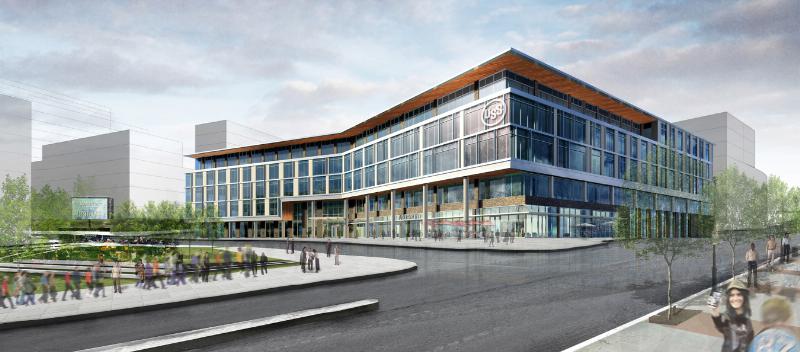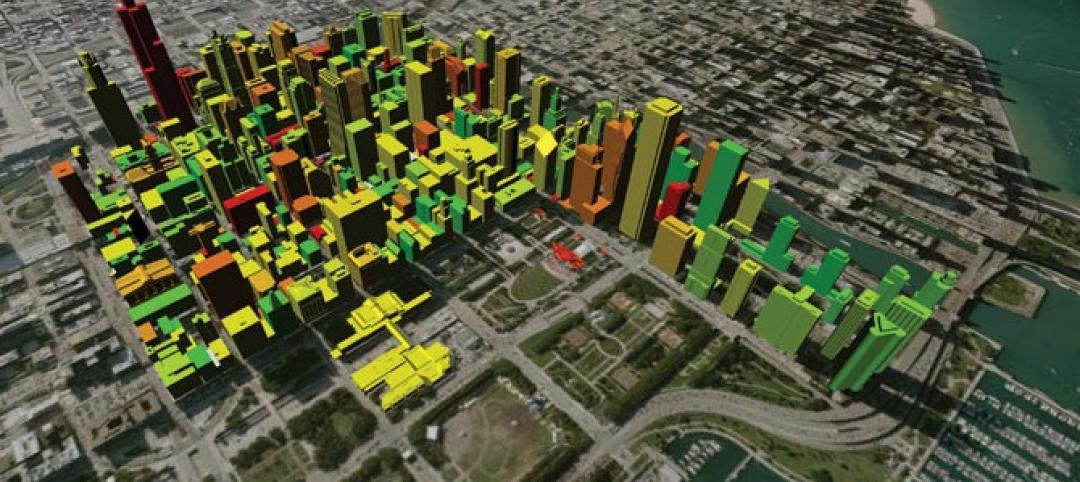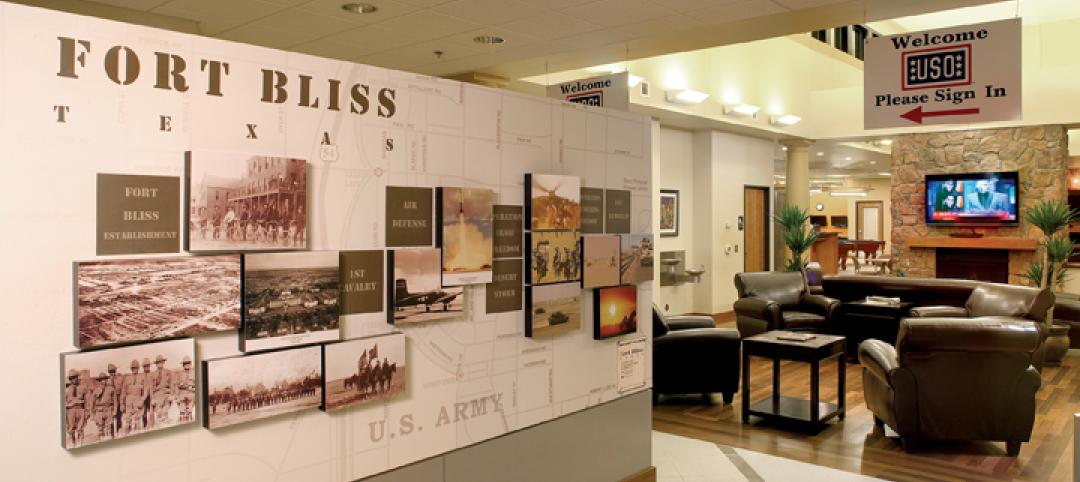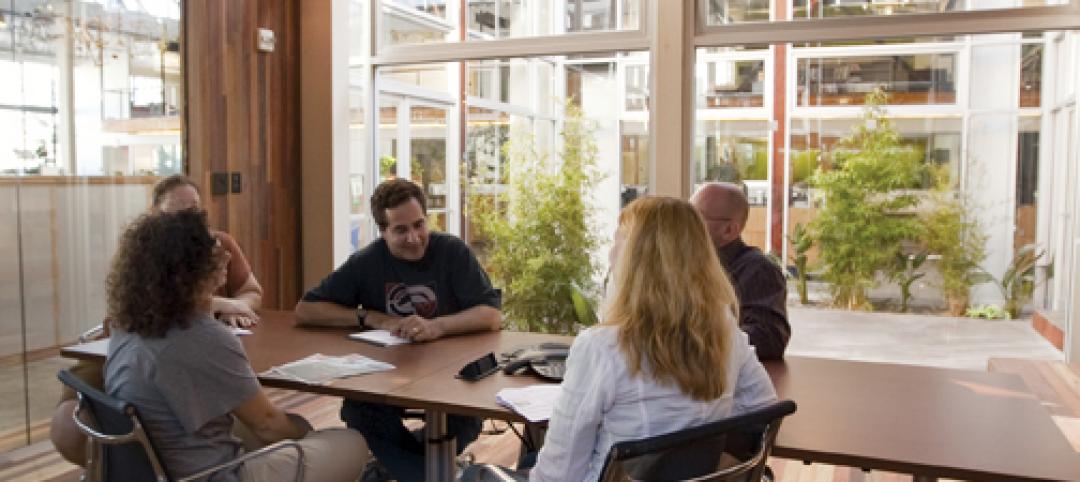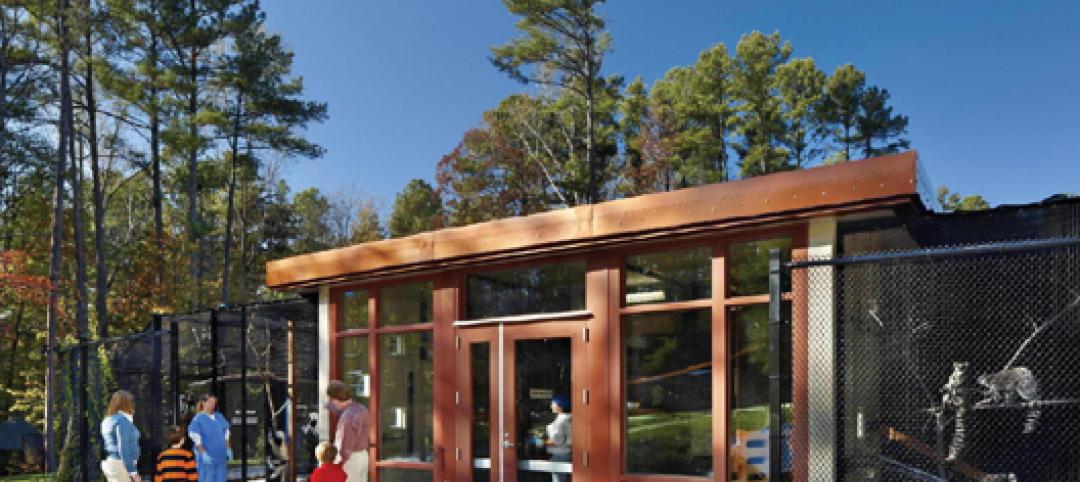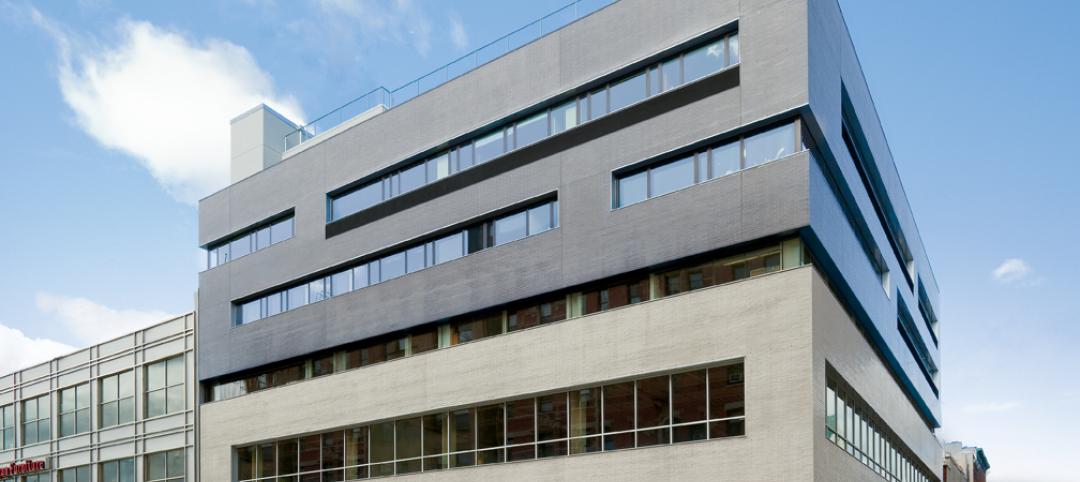U.S. Steel, which has operated in Pittsburgh for more than 100 years, plans to stay at least 18 more.
The giant steelmaker—which sold its 64-story U.S. Steel Tower headquarters in April 2011 and a year later announced it would move out of that building—has inked a deal with the Pittsburgh Penguins hockey franchise to build a five-story, 268,000-sf office building on the old Civic Arena site downtown, which the Penguins own.
A subsidiary of the Penguins and the team’s developer, St. Louis-based Clayco, will jointly own the new building, for which construction is scheduled to begin next summer and be completed by October 2017, around the time that U.S. Steel’s five-year lease on 450,000 sf in the U.S. Steel Tower expires. The projected cost of the new building was not disclosed.
U.S. Steel plans to move 800 employees from that tower and offices at Penn Liberty Plaza into 250,000 sf of the new building, which it will lease for at least 18 years, with an option to extend its lease beyond that. The rest of the space will be used for retail stores. The 2.25-acre site will include a museum highlighting Pittsburgh’s and U.S. Steel’s role in the worldwide steel industry.
The company’s decision to remain in Pittsburgh put an end to more than two years of speculation about where it might be headed. Indiana and Illinois reportedly were wooing U.S. Steel to relocate. U.S. Steel had also looked at several other buildings in different areas in and around Pittsburgh.
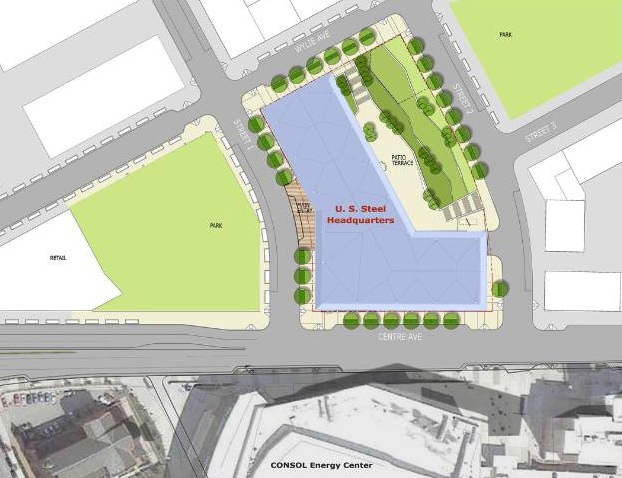
Site plan for U.S. Steel's new HQ, which will be located across from the Consol Energy Center, home of the Penguins NHL hockey team.
Several local news reports stated that it was Penguins’ CEO David Morehouse who convinced U.S. Steel’s CEO Mario Longhi to keep the company in Pittsburgh. The two chief executives met during a September 2013 barbecue at the home of the Penguins’ legendary player and co-owner Mario Lemieux. At that meeting, Morehouse impressed on Longhi that U.S. Steel was the “foundation upon which this city was built.”
Indeed, Pittsburgh’s Mayor Bill Perduto was on record saying “I didn’t want to be the Pittsburgh mayor to lose U.S. Steel.” Allegheny County Executive Rich Fitzgerald lobbied federal environmental, transportation, and trade officials on U.S. Steel’s behalf. And Pennsylvania Gov. Tom Corbett last month announced nearly $31 million in state grants to rehab three U.S. Steel plants in the state.
By agreeing to move into new digs, U.S. Steel would be the first corporate anchor tenant for a 28-acre Uptown site next to Consol Energy Center, where $440 million in development is planned, according to the Pittsburgh Tribune-Review and other news reports. That development would include retail, housing, and office space, and would be partially funded by more than $30 million in state grants and local tax-increment incentives, which would direct some of the development’s revenue to job training and other programs.
U.S. Steel has agreed to take only half of its potential abatements, with the rest of the incentives going to fund other parts of the Hill District, according to the Pittsburgh Post-Gazette.
Related Stories
| Jan 25, 2011
Bloomberg launches NYC Urban Tech Innovation Center
To promote the development and commercialization of green building technologies in New York City, Mayor Michael R. Bloomberg has launched the NYC Urban Technology Innovation Center. This initiative will connect academic institutions conducting underlying research, companies creating the associated products, and building owners who will use those technologies.
| Jan 25, 2011
Top 10 rules of green project finance
Since the bottom fell out of the economy, finding investors and financial institutions willing to fund building projects—sustainable or otherwise—has been close to impossible. Real estate finance prognosticators, however, indicate that 2011 will be a year to buy back into the real estate market.
| Jan 25, 2011
Chicago invented the skyscraper; can it pioneer sustainable-energy strategies as well?
Chicago’s skyline has always been a source of pride. And while few new buildings are currently going up, building owners have developed a plan to capitalize on the latest advances: Smart-grid technologies that will convert the city’s iconic skyline into what backers call a “virtual green generator” by retrofitting high-rise buildings and the existing electrical grid to a new hyper-connected intelligent-communications backbone.
| Jan 25, 2011
AIA reports: Hotels, retail to lead U.S. construction recovery
U.S. nonresidential construction activity will decline this year but recover in 2012, led by hotel and retail sectors, according to a twice-yearly forecast by the American Institute of Architects. Overall nonresidential construction spending is expected to fall by 2% this year before rising by 5% in 2012, adjusted for inflation. The projected decline marks a deteriorating outlook compared to the prior survey in July 2010, when a 2011 recovery was expected.
| Jan 25, 2011
Jester Jones Schifer Architects, Ltd. Joins GPD Group
GPD Group is excited to announce that Jester Jones Schifer Architects, a Marion-based architectural firm, has joined our firm, now enabling GPD Group to provide architectural services to the Central-Ohio market.
| Jan 21, 2011
Combination credit union and USO center earns LEED Silver
After the Army announced plans to expand Fort Bliss, in Texas, by up to 30,000 troops, FirstLight Federal Credit Union contracted NewGround (as CM) to build a new 16,000-sf facility, allocating 6,000 sf for a USO center with an Internet café, gaming stations, and theater.
| Jan 21, 2011
Manufacturing plant transformed into LEED Platinum Clif Bar headquarters
Clif Bar & Co.’s new 115,000-sf headquarters in Emeryville, Calif., is one of the first buildings in the state to meet the 2008 California Building Energy Efficiency Standards. The structure has the largest smart solar array in North America, which will provide nearly all of its electrical energy needs.
| Jan 21, 2011
Primate research facility at Duke improves life for lemurs
Dozens of lemurs have new homes in two new facilities at the Duke Lemur Center in Raleigh, N.C. The Releasable Building connects to a 69-acre fenced forest for free-ranging lemurs, while the Semi-Releasable Building is for lemurs with limited-range privileges.
| Jan 21, 2011
Harlem facility combines social services with retail, office space
Harlem is one of the first neighborhoods in New York City to combine retail with assisted living. The six-story, 50,000-sf building provides assisted living for residents with disabilities and a nonprofit group offering services to minority groups, plus retail and office space.


